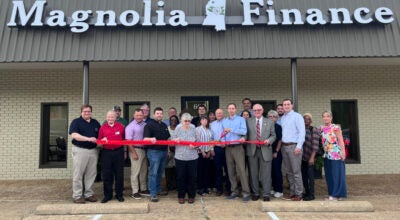Rolando Update
Published 12:00 am Friday, June 26, 2009
By Billy Davis
Panolian readers know by now that a Deed of Trust, filed in May 2007 in Panola County, shows that Roland Butler used Crenshaw’s only industrial plant as collateral to borrow $1.4 million in start-up funds.
Panolian readers also know that Butler’s plant has yet to employ a worker or produce a product, even though three years have passed since he was given the cavernous plant and 10 adjoining acres.
Butler, in fact, has yet to even erect a sign on the property advertising Rolando Curtis Foods.
So what did Butler do with the $1 million-plus he borrowed?
Panola county supervisors broached that topic at a June 8 board meeting, claiming the contract that gave Butler the plant also gives them the authority to demand an accounting of the $1.4 million.
“We owe it to the people of Panola County to find out what we can find out,” Supervisor Kelly Morris said during board discussion of the matter.
Supervisors directed board attorney Bill McKenzie to contact Butler to schedule a face-to-face meeting.
McKenzie has since contacted Butler, who is scheduled to appear at the July 7 supervisors’ meeting, the board attorney told The Panolian this week.
As supervisors seek answers from Butler, another unanswered question involves Dill Ski Aspen, LLC, the Colorado business that, according to the Deed of Trust, loaned Butler the $1.4 million.
By deeding the property to Dill Ski Aspen, Butler made the company the lien holder on the property, which means Dill Ski Aspen would own the Crenshaw plant if Butler defaulted on the loan.
According to the deed on file in Panola County, Butler was set to pay back the $1.4 million within six months – by November 30, 2007.
Butler has told The Panolian that he did pay back the loan, but a release, which would show the property was returned to Butler, has never been filed at the courthouse.
In the state of Colorado, the secretary of state’s office there has recorded four “Dill Ski Aspen” companies, all limited liability businesses: Dill Ski Aspen, LLC; Dill Ski Aspen II, LLC; Dill Ski Aspen III; LLC; and Dill Ski Aspen IV, LLC.
So which company loaned Butler the $1.4 million for his start-up business?
Butler may have borrowed funds from the original business, since the Deed of Trust lists “Dill Ski Aspen, LLC” as the beneficiary.
Also, on that Deed of Trust, the mailing address is listed as Delray Beach, Florida, the same address listed in the Articles of Organization for the first Dill Ski Aspen.
The original Dill Ski Aspen was formed in September 2005, according to the state documents filed by Aspen attorney Millard J. Zimet. His name is also listed in filings for Dill Ski Aspen II.
In other state documents, Aspen attorney Chris LaCroix is listed as a registered agent for Dill Ski Aspen III and Dill Ski Aspen IV.
LaCroix is a partner in Garfield and Hecht, a law firm with offices in four Colorado cities. The company lends funds through its transactional practice, according to its Web site.
Why would real estate attorneys in affluent Aspen, Colorado, loan Roland Butler $1.4 million for a dilapidated plant in Crenshaw, Mississippi?
And why loan more than a million dollars when a New York bank was already suing Rolando Curtis Foods in U.S. District Court in Maryland for failing to pay back a $103,000 loan for industrial equipment?
“I think I’ll have to say no comment from me,” said LaCroix, when reached by phone this week at his law office.
LaCroix had originally told a reporter he would “have somebody call you back” regarding the lien on Crenshaw property, but he declined comment when reached 24 hours later.
“Mr. Zimet doesn’t want to talk to you, thanks,” said someone who answered the phone, and promptly hung it up, at Zimet’s law office.
Butler also did not return messages this week that were left on his cell phone.
The U.S. District Court in Maryland had tried unsuccessfully to locate Butler’s wife, Louise Butler, to answer the complaint from Sterling National Bank. Louise Butler was listed as registered agent for the company.
So Judge Deborah K. Chasanow entered a default judgment against Rolando on July 31, 2006.
Panola County’s board of supervisors gave the plant to Butler a month later.



